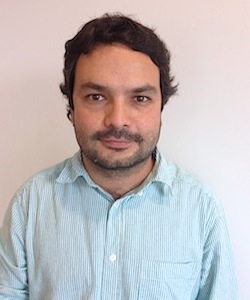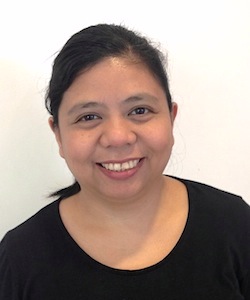
Galvanizing Open Data Leadership for EITI Implementation
This week, the Natural Resource Governance Institute (NRGI) is hosting extractives experts from six countries to at the International Open Data Conference (IODC) in Ottawa, Canada.
Civil society actors and government officials from Ghana, Indonesia, Mexico, Mongolia, the Philippines and Tanzania arrived ahead of the IODC event for an intensive workshop on the power of open data to enhance their efforts in the Extractive Industries Transparency Initiative (EITI).
The workshop marked the inauguration of our Extractives Open Data Leaders program, established to strengthen open data work within EITI country processes by improving data availability, increasing data standardization, improving open data licensing, and enhancing data reuse.
In each country that participates in EITI, government, civil society and industry representatives form a "multi-stakeholder group" (MSG) that oversees the local EITI process. The NRGI data leaders, representing their countries' MSGs, will learn from a wide range of international experts at the 2015 IODC. Participants will explore open data policy; acquire tools and techniques to help them foster open data initiatives within their own MSG processes; and bring innovation and new momentum to the work of their colleagues and local partners. With focus on improvements to national EITI processes, the group will also discuss how open data standards can advance data reuse and how project-level reporting can be implemented in practice at the EITI country level.
NRGI will support the open data leaders both during the conference and as they continue to lead by promoting open data efforts at home.
NRGI's senior governance officer Erica Westenberg, who is co-leading this week's training, says: “Strong data practices can make data collection more efficient, accurate and less costly. Open data can benefit all stakeholders by reducing suspicions, building trust, and facilitating analysis that can improve sector policies.”
This week's activities are closely aligned with the aims of the IODC conference. Two of the event's key action areas are strengthening the global network of open data leaders and building open data capacity.
The open data leaders bring experience with both breakthroughs and obstacles in fulfilling EITI's mission. Indonesia, for instance, was ruled “compliant” by EITI's board in 2014, but faced challenges delivering its next report on deadline. At the same time, a nascent open data community is forming there among some civil society groups. In the Philippines, government officials worked closely with the EITI MSG to create an online digital dashboard showing dozens of oil and mining contracts and related materials. Mexico, which currently co-chairs the international Open Government Partnership (OGP), has committed to join EITI as part of its OGP action plan. And in Mongolia, mining companies and citizens in mining communities have each taken steps to link EITI data, or the promise of data, to better local outcomes from mining.
Throughout this week, the open data leaders will sit down for bilateral conversations with experts from the technology, governance, civil society and policy communities. NRGI staff look forward to continued collaboration with participants as they develop policies and activities that can deepen the impact of their local EITI processes.
NRGI continues to promote and help guide EITI processes. This capacity development work entered its newest phase with the launch of revised EITI Standard in 2013. NRGI's interactive guide to the new rules explains key steps for collecting and disseminating meaningful EITI information. NRGI also convenes regional trainings, where campaigners for oil and mining transparency can delve into the opportunities and challenges of EITI data disclosure and analysis.
Meet our open data leaders
 |
Oyunbadam Davaakhuu is the manager of the Economic Policy Program at Open Society Forum (OSF) of Mongolia, focusing on transparency and accountability of budgets. She has previously worked at as a project manager with Mongolia's Ministry of Economic Development and as a UNDP project officer. |
 |
Manuel Llano runs the website CartoCrítica (www.cartocritica.org), specializing in geographic information systems (GIS) for the defense of the territory, and is also a GIS consultant for civil society organizations. |
 |
Jensi Sartin is a program development manager with Publish What You Pay Indonesia and also applies open data to improve accountability of Indonesia's extractive sector. |
 |
Benoni Christopher Djabaku Ocansey is a manager of tax audit with the Mining and Construction Unit of the Large Taxpayer Office of the Ghana Revenue Authority. Previously he was a Crown Agents tax consultant to DFID UK in Sierra Leone, where he assisted in setting up the mining tax audit unit. |
 |
Gay Alessandra Ordenes is currently the national EITI coordinator in the Philippines. She is a lawyer specializing in administrative law, good governance and the extractive industries. |
 |
Anastazia Simion is a Finance Management Officer in the Tanzania EITI Secretariat. Her major role is to manage data relating to TEITI reports and analyze the macro-economic effects and contribution to national economic growth of extractive industries. |
Jed Miller is open data consultant to NRGI and former internet director of the Revenue Watch Institute.
